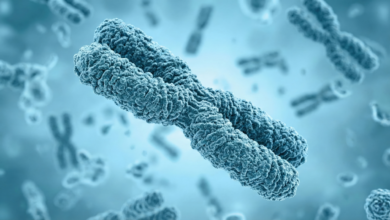Blog
जीन संबंधी रोग और परिवार पर इसका असर:

Genetic disease परिवार को कैसे प्रभावित करता है
- यह परिवार में भावनात्मक तनाव बढ़ाता है।
- माता-पिता, भाई-बहन और बच्चे चिंता और डर महसूस कर सकते हैं।
- भविष्य के स्वास्थ्य और जीवन शैली को लेकर असुरक्षा पैदा होती है।
- परिवार में सहयोग और समझ की जरूरत बढ़ जाती है।
- कभी-कभी मानसिक स्वास्थ्य पर भी असर पड़ सकता है।
क्या यह आर्थिक बोझ बढ़ाता है
- दवाइयाँ, उपचार और टेस्ट महंगे हो सकते हैं।
- लंबी अवधि में परिवार की वित्तीय योजना प्रभावित होती है।
- विशेष शिक्षा या देखभाल की जरूरत हो सकती है।
- बीमा और मेडिकल खर्चों का तनाव बढ़ सकता है।
- आर्थिक तनाव परिवार के रिश्तों पर भी असर डाल सकता है।
परिवार में भावनात्मक समर्थन क्यों जरूरी है
- रोगी और परिवार दोनों को सहारा मिलता है।
- तनाव और चिंता कम होती है।
- रिश्तों में सहयोग और समझ बढ़ती है।
- भावनात्मक स्थिरता स्वास्थ्य में मदद करती है।
- यह रोग से जुड़ी मुश्किल परिस्थितियों को संभालने में मदद करता है।
क्या परिवार के सदस्यों को भी जोखिम होता है
- कुछ रोग आनुवंशिक होने के कारण परिवार के अन्य सदस्य भी प्रभावित हो सकते हैं।
- यह रोग की प्रकृति पर निर्भर करता है (जैसे ऑटोसोमल या X-linked)।
- परिवार के अन्य सदस्य जीन टेस्ट करा सकते हैं।
- जागरूकता से समय पर रोकथाम संभव है।
- परिवार के लिए हेल्थ प्लान बनाना महत्वपूर्ण है।
क्या परिवार में तनाव बढ़ता है
- हाँ, रोग के बारे में अनिश्चितता और चिंता बढ़ती है।
- रोज़मर्रा की जिम्मेदारियाँ और देखभाल कठिन हो जाती हैं।
- माता-पिता या देखभाल करने वालों पर मानसिक दबाव बढ़ता है।
- तनाव परिवार के सभी सदस्यों के स्वास्थ्य को प्रभावित कर सकता है।
- परिवारिक सहयोग तनाव को कम करने में मदद करता है।
क्या रोगी अकेलापन महसूस कर सकता है
- हाँ, रोगी कभी-कभी अलग और अलग-थलग महसूस करता है।
- परिवार का समर्थन अकेलेपन को कम करता है।
- दोस्तों और समुदाय से जुड़ना मदद करता है।
- भावनात्मक बातचीत तनाव घटाती है।
- मानसिक स्वास्थ्य बेहतर रहता है।
बच्चों पर क्या असर पड़ता है
- बच्चों को माता-पिता की चिंता और भावनात्मक दबाव दिखाई देता है।
- कभी-कभी बच्चे Schuld या गिल्ट महसूस कर सकते हैं।
- बच्चों को सही जानकारी और समझ देना जरूरी है।
- भावनात्मक सुरक्षा देने से बच्चे स्वस्थ रहते हैं।
- परिवारिक संवाद मददगार साबित होता है।
भाई-बहन पर क्या असर पड़ता है
- भाई-बहन कभी-कभी ध्यान और प्यार में कमी महसूस कर सकते हैं।
- समझ और संवेदनशीलता बढ़ानी पड़ती है।
- उनके लिए भावनात्मक समर्थन और शिक्षा महत्वपूर्ण है।
- परिवार को संतुलित समय देना जरूरी है।
- इससे भाई-बहन का मानसिक स्वास्थ्य बेहतर रहता है।
9. पारिवारिक संबंध कैसे प्रभावित होते हैं
- तनाव और देखभाल की जिम्मेदारियाँ रिश्तों में दबाव ला सकती हैं।
- सहयोग और समझ से रिश्ते मजबूत भी हो सकते हैं।
- खुला संवाद तनाव कम करता है।
- भावनात्मक संतुलन बनाए रखना जरूरी है।
- परिवारिक गतिविधियों में शामिल होना रिश्तों को बेहतर बनाता है।
क्या मानसिक स्वास्थ्य प्रभावित होता है
- चिंता, डर और अवसाद बढ़ सकता है।
- देखभाल करने वालों में बर्नआउट की संभावना होती है।
- परिवारिक समर्थन मानसिक स्वास्थ्य को मजबूत करता है।
- तनाव प्रबंधन और काउंसलिंग मददगार हैं।
- मानसिक स्वास्थ्य को नजरअंदाज नहीं करना चाहिए।
क्या परिवार की दिनचर्या बदलती है
- देखभाल और चिकित्सा की वजह से दिनचर्या बदलती है।
- विशेष आहार, दवाइयाँ और डॉक्टर विजिट शामिल होती हैं।
- काम और सामाजिक गतिविधियों में बदलाव आ सकता है।
- समय प्रबंधन जरूरी हो जाता है।
- परिवार को लचीलेपन और समन्वय की जरूरत होती है।
क्या सामाजिक जीवन प्रभावित होता है
- परिवार कभी-कभी सामाजिक कार्यक्रमों में कम शामिल हो पाता है।
- बाहर जाने या छुट्टियाँ सीमित हो सकती हैं।
- दोस्तों और समुदाय के साथ संबंध प्रभावित हो सकते हैं।
- सपोर्ट ग्रुप्स और ऑनलाइन समुदाय मददगार साबित होते हैं।
- सामाजिक संपर्क तनाव कम करता है।
क्या शिक्षा और जागरूकता जरूरी है
- रोग के बारे में परिवार को सही जानकारी होनी चाहिए।
- जीन और चिकित्सा विकल्पों की समझ जरूरी है।
- जागरूकता से निर्णय लेने में मदद मिलती है।
- शिक्षा तनाव कम करती है।
- सही जानकारी बच्चों और भाई-बहन के लिए भी जरूरी है।
क्या परिवार को चिकित्सा निर्णय में शामिल होना चाहिए
- हाँ, परिवार का समर्थन निर्णय लेने में मदद करता है।
- रोगी की जरूरतों और प्राथमिकताओं को समझना जरूरी है।
- चिकित्सक के साथ संवाद बेहतर स्वास्थ्य परिणाम देता है।
- निर्णय साझा करने से भावनात्मक बोझ कम होता है।
- परिवार के सहयोग से देखभाल और उपचार आसान होता है।
परिवार में सहयोग कैसे बढ़ाया जा सकता है
- नियमित खुला संवाद और भावनात्मक समर्थन देना।
- रोग और देखभाल के बारे में सभी को जानकारी देना।
- जिम्मेदारियाँ और समय साझा करना।
- सपोर्ट ग्रुप्स और काउंसलिंग का सहारा लेना।
- परिवार में प्यार, समझ और धैर्य बनाए रखना।





